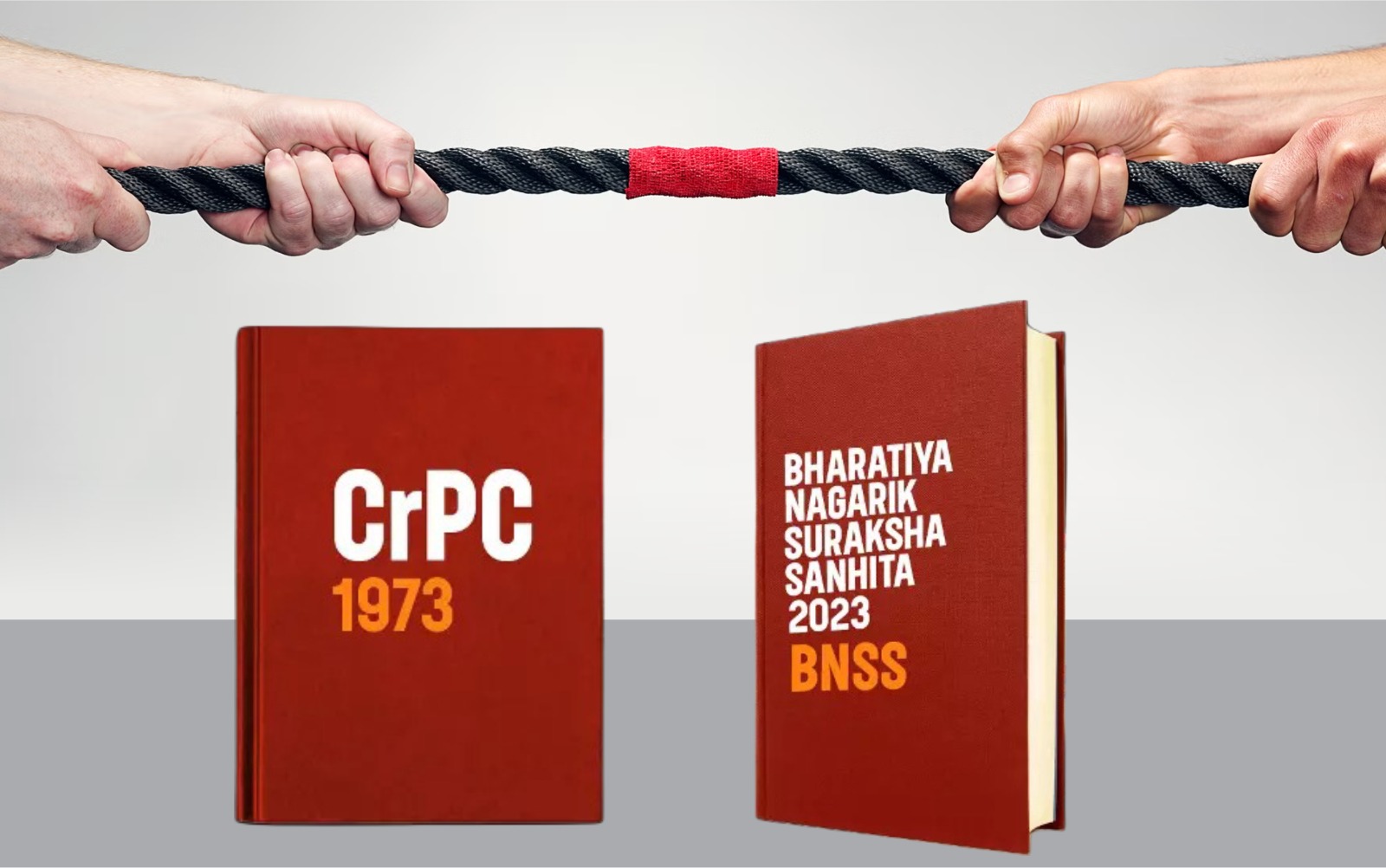
CrPC vs. BNSS: Navigating the Legal Transition of July 1, 2024
Posted on: Sep 10, 2024
On July 1, 2024, India witnessed a pivotal change in its criminal justice system with the introduction of the *Bharatiya Nagarik Suraksha Sanhita (BNSS), which replaced the **Code of Criminal Procedure (CrPC)*. The transition has created considerable legal debates and confusion across the judiciary regarding which code governs ongoing and newly instituted cases, leading to a series of conflicting rulings by various High Courts across the country.
Background:*
The BNSS was enacted to address modern challenges faced by the criminal justice system, which the CrPC, first enacted in 1973, was increasingly seen as outdated. However, this shift created a "tug of war" between the two codes, especially concerning the applicability of the CrPC to cases that were initiated before the BNSS came into effect but were still ongoing after July 1, 2024.
*Legal Confusion:*
Courts across India are divided over the interpretation of Section 531 of the BNSS, which contains the repeal and savings clause. Some High Courts, including the *Rajasthan High Court*, have ruled that cases initiated under the CrPC must continue under its provisions, irrespective of the BNSS coming into effect. They reason that disrupting ongoing trials or investigations by switching to the BNSS would cause unnecessary procedural complications and violate the principle of continuity in law【155†source】【156†source】
On the other hand, High Courts such as *Punjab & Haryana* and *Kerala* have taken a more forward-looking approach. They have ruled that while trials initiated before July 1, 2024, will continue under the CrPC, any appeals or new filings after this date must follow the procedures under the BNSS. This creates a scenario where one procedural code governs trials and another governs subsequent appeals and applications, leading to a procedural split between the old and new regimes【155†source】【156†source】.
*Key Provisions and Judicial Interpretations:*
The core of this debate centers around *Section 531(2)* of the BNSS, which aims to preserve ongoing legal procedures under the CrPC. However, the courts are interpreting this provision differently. For instance, the *Delhi High Court* has noted that any bail applications filed after July 1, 2024, should adhere to the BNSS, regardless of when the FIR was registered【156†source】. This ruling has sparked criticism, with some arguing that legal continuity is best maintained by sticking to the procedural law under which the case was originally initiated.
My View on the Matter:*
While the need for modernizing criminal procedure laws is clear, the transitional period must be handled delicately. The courts should avoid arbitrary shifts between procedural codes to ensure fairness and justice. A potential solution could involve clear legislative guidance on how to handle ongoing cases, preventing different courts from offering conflicting interpretations that confuse both legal professionals and the public.
The courts also need to recognize that procedural law, while essential, should not overshadow substantive justice. The goal should always be to ensure that the rights of the accused and the complainants are not compromised during this transitional phase. Until the BNSS is fully absorbed into the legal system, both judicial restraint and legislative clarity are needed to prevent further complications.
Conclusion:*
The introduction of the BNSS has undeniably set the stage for a more updated criminal procedure regime, but its implementation has revealed gaps in how we handle legal transitions. It will be interesting to see how the *Supreme Court* and the legislature address these conflicting interpretations in the future.
For a more detailed analysis, refer to SCC Online’s comprehensive review of the transition【155†source】【156†source】.





Comments (0)
Post Your Comment